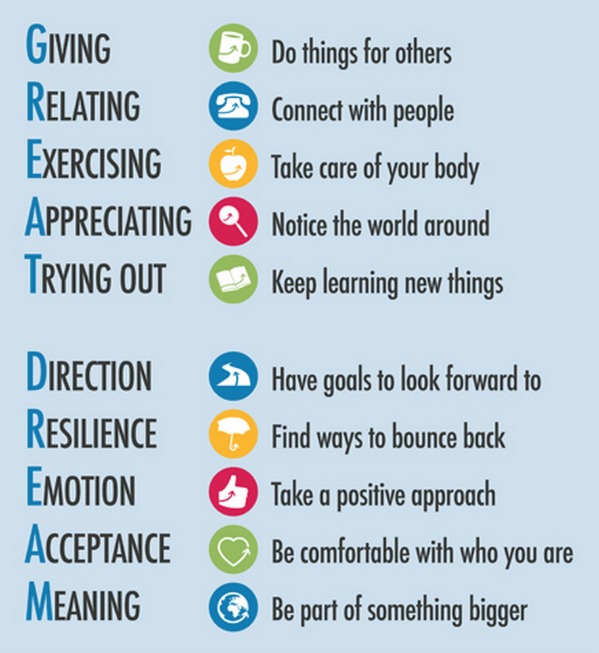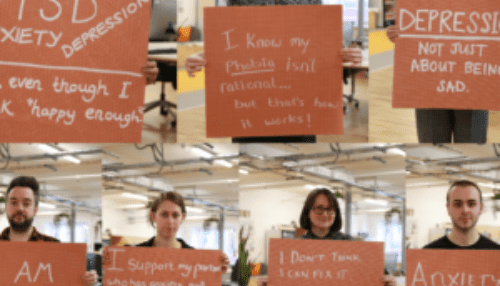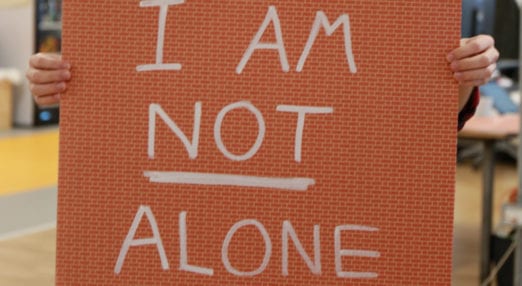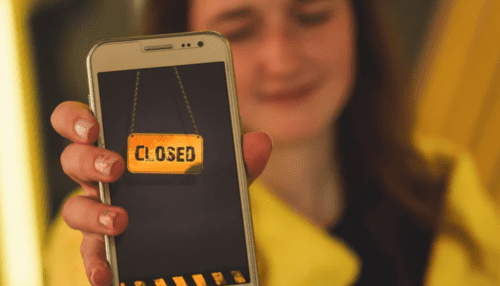Happy International Day of Happiness! Now let’s talk about depression
Today is the International Day of Happiness. But 8.6 million adults in the UK have depression or anxiety. Digital needs to be equipped to help those who are less able to be more happy.
The problem
Today is the International Day of Happiness. However, today it emerged that funding for mental health services has been cut by a shocking 8% since 2011.
And one in every six adults in the UK are suffering from depression or anxiety.
That’s 8.6 million people; more than the entire population of Greater London, each with their own story, their own struggles, and their own reasons why being happy is harder to achieve than simply being told that it’s a Day to be happy.
Add to this the uncomfortably sharp rise in UK suicides since 2009, resulting in the deaths of an average sixteen adults every single day. The sharp end of unhappiness is having a tangibly devastating effect on society, and the change required – like depression itself – is more than skin-deep.
The solution?
None of that is to undermine the International Day of Happiness whose target is, admirably, to spread happiness and goodwill. Marking its third celebration since creation, the day promotes genuine happiness; connecting with people, appreciating the world around you and being comfortable with who you are. It’s awesome.
Indeed, the website actively rubbishes the idea that happiness is the result of money, fame or beauty, and has helped to set up a series of online and offline events to spread happiness in a nicely put-together campaign that will make a real impact to many people’s days and lives. This is the kind of thing we love at Reason Digital.
Battling depression
Equally as useful as this sincere and effective celebration of happiness though, is the focus it implicitly places upon the opposite of happiness: depression.
As anyone living with a mental health condition will tell you, it takes more than paying lip service to ‘happiness’ or ‘getting better’ to truly impact on wellbeing.
Depression is so cyclically pervasive that those affected by it are, perhaps, the least likely to take part in a Day designed to spread happiness; stimulating oneself to do anything can be insurmountably difficult in the depths of depression, so 24 hours dedicated to overtly, extrovertly showing a smile could be understandably formidable for many.
The International Day of Happiness does provide some guidance in this respect, rather than assuming we all have an equal ability and propensity to be happy. Its ten commandments to achieving happiness aren’t as preachy as they first sound, and you can access them on your own digital tablet rather than a stone tablet courtesy of Moses. It provides small, abstract goals, some of which – most notably exercise and maintaining social connections – conform with medically-approved methods of helping to combat depression and anxiety.

The role of the internet
This is just one example of where the internet has the potential to make tangible, real differences to people’s lives: advice, guidance and support, as well as the mobilisation of citizens into a common movement.
Given today’s news that mental health service budgets have been cut, the responsibility to cope with, manage and battle depression and anxiety is increasingly being delegated to charities and to the individual – and, by extension, the internet.
However, we must be careful that the difference the internet makes at an individual-level – particularly in relation to something as important as depression – is sensible, well-targeted and founded on empiricism. Frank is a great example of a digital resource which provides trustworthy information and advice about a frequently unspoken social problem (drug use, in this case). Without this service, the alternative for many sufferers would be to navigate an often scary situation by themselves.
86% of young people have searched online for an answer to a personal problem, rather than consulting a friend, family member or charity. The internet has become an institution in itself, acting as a trusted confidant, source of information and influencer of emotional state.
Indeed, a (bafflingly unethical) study conducted on behalf of Facebook found that emotions are propagated through networks, in a process the authors of the paper refer to as “contagion via social networks”. Unwitting (and unconsenting) participants in the study were exposed to a higher-than-average proportion of either ‘happy’ or ‘sad’ statuses. The article concludes with statistical confidence that Facebook behaviour is directly caused by that of one’s friends; if your friends are posting pictures of their hot-dog legs or statuses about pregnancies (or is that just my newsfeed?), you’re more likely to follow suit. If your friends are posting about their dead gerbil or George Osborne, your own statuses are likely to be equally as miserable.
There is a multitude of further studies which argue that internet usage – for better or worse – makes a tangible impact upon mood, attitude, behaviour and mental health.
This is an important consideration in the case of helping younger people cope with depression and anxiety: not only is this demographic particularly receptive to this method of receiving information, but a recent government report states that current mental health services for children and teenagers are far less accessible and effective than they need to be.
The average person in the UK now spends over five hours per day on digital devices and, as the above studies highlight, the average person is also susceptible to behavioural and emotional manipulation.
Given that this is an unchangeable feature of our relationship with the internet, it is instead our duty to make sure that this relationship is a positive one.
Let’s make people happy. Let’s provide support for people who aren’t happy. Let’s do good with digital.

Where to go online if you’re depressed
So, given the emergence of the latest mental health funding cuts on the International Day of Happiness, let’s take a look at the twelve best and most innovative websites, apps and ideas out there which provide support, relief or guidance to people with depression and anxiety.
For help with therapy:
- The Buddy app provides a great way for therapy patients to take control for their care, allowing a diary to be kept, a series of encouraging prompts to be established and a greater insight to be gained by the therapist.
- eCBT Calm is designed to guide you through a rough approximation of Cognitive Behavioural Therapy – a method by which coping skills are learnt – and provides a series of online resources and links to further help.
- Headspace is another great website and app which – initially for free – provides personalisable, potentially-sociable guidance for meditation and mindfulness in a way which encourages you to take time out of your day and find ways to achieve a happier and healthier life.
For help in an emergency:
- Operation Reach Out is a last-resort app, designed to prevent suicide during someone’s most desperate moment. A series of short video messages convincing the viewer of The Facts of their situation are included, as well as other helpful resources and the ability to program in emergency contact numbers.
To improve physical health:
- In keeping with the aforementioned advice that physical activity is one key to battling depression, Bounts is a free App which motivates you to exercise by providing retail rewards for reaching given targets… meaning regular exercise could help to improve your mood and earn a £5 Debenhams voucher. What greater incentive could you possibly need?
- Deep Sleep is an app which uses guided meditation and music to help you get a proper night’s sleep; one of the vital components of maintaining good mental health.
- Relax Melodies allows the you to mix ambient sounds to create relaxing, sleep-inducing soundtracks that can be used to meditate or rest to. This seems like a great way to create your own digital soundscapes unless you’re Skrillex, in which case you’ll probably ruin it.
To track your mood:
- MindShift is primarily designed for young adults but can be used by anyone and is free. It combines a really clean, easy-to-use interface with genuinely useful behavioural self-assessment, ‘chillout tools’ and steps to coping with anxiety.
- Emotion Sense is a really nifty-looking Android app which, through the use of regular surveys, statistically estimates what external forces are driving their emotional peaks.
- Expereal is visual interpretation of the above mood-tracking apps; it allows you to see moods over time and across locations, coded by colour and size, meaning you can track what, when and where you feel happiest and saddest, and plan accordingly. If the website is anything to go by, a ‘night out’ is a big red splodge, and ‘grinding’ is a tiny grey splodge. Make of that what you will.

For light-hearted relief
- Everybody knows that cats and the internet go together like Monday mornings and strong coffee. It should therefore be no surprise that Emergency Kitten is my favourite website in this list. Need a randomly generated picture of a ludicrously cute cat to give you a quick mood lift? This is the place.

- Ever wanted to learn how to breathe better by putting an iPhone on your stomach? Probably not, but BellyBio still looks pretty cool. Combining relaxing music, instructional colours and clever ‘biofeedback’, this app is intended to encourage you to breathe deeply, calmly and abdominally. Although we’re not sure about the developer’s claim that it will make you the “coolest dude in the neighbourhood”.
So, while the International Day of Happiness is a great campaign and will really make a difference, there is an entire internet for further services to be provided. Depression and anxiety affect huge numbers of people in tangible, devastating ways, and yet top-down support for people with mental health conditions is increasingly disappearing. Given the internet’s existing role and status, the answer to this is digital. Care should be provided where people are – not where they might be – so online innovation is key. If you’re depressed, being told it’s a Day to be happy is hard, but there is other support available to you.
More on mental health
-

Let’s talk about mental health | Part 1
I sat down with some of our team to talk openly about mental health.
Find out more
-

Let’s talk about mental health | Part 2
In the second part of our short series about mental health, the Reason team and I discussed memories. When did we first experience symptoms of a mental health issue creeping into our lives? How did we cope in a time when it was unconventional to acknowledge and diagnose these behaviours?
Find out more
-

How can digital help Mind support their vast network of mental health charities amidst the Covid crisis?
Two weeks of focus. One big challenge. The team here at Reason and Superhighways recently joined forces as Collaborators of Catalyst. The goal of this collaboration was to support national mental health charity, Mind, with a hefty organisational challenge, using digital to do so.
Find out more



